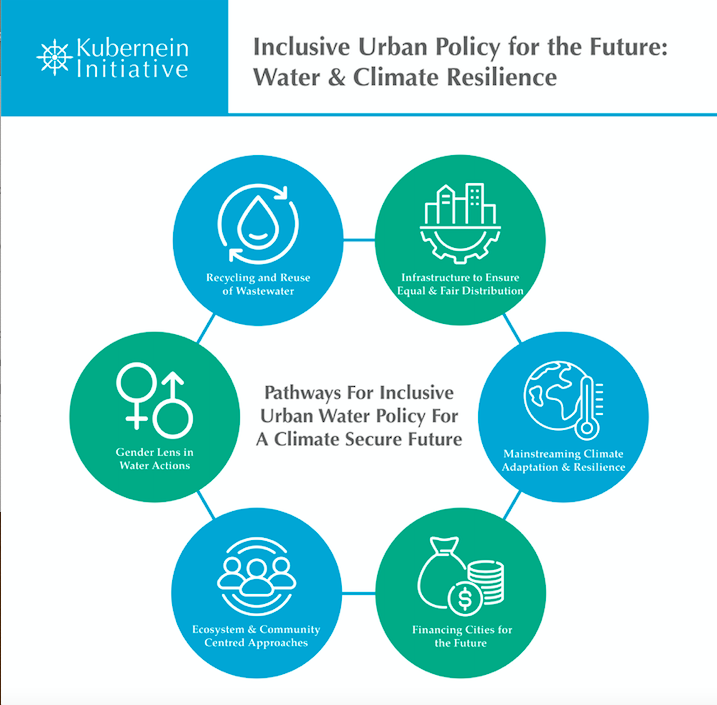
Achievement at a glance
The Inclusive Urban Policy for the Future initiative has made significant advancement in promoting water and climate resilience in urban policies. Our initiative has been analyzing the intricate role of gender in water and climate action and has provided pathways for inclusive policies that promote gender equality and community resilience. Our work has been focusing on six key areas:1. Gender Lens in Water Action - Stimulates gender-responsive policies for equitable access to water and sanitation services, with a focus on women and girls.
2. Recycling and Reuse of Wastewater - Urges safe and effective recycling and reuse of wastewater to improve water efficiency and reduce pollution.
3. Infrastructure to Ensure Fair and Equal Distribution - Fosters fair and equal distribution of water resources and infrastructure, prioritizing marginalized communities.
4. Mainstreaming Climate Adaptation and Resilience - Endorse policies that integrate climate adaptation and resilience into urban planning and development, prioritizing vulnerable communities and ecosystems.
5. Ecosystem and Community Centred Approaches - Advocates for ecosystem and community-centered approaches to water and climate resilience, protecting natural systems and engaging local communities.
6. Financing Cities for the Future - Encourage sustainable and equitable financing for water and climate resilience in urban areas, leveraging public and private financing and engaging local communities and stakeholders.
Next Steps
Ambika VishwanathBeneficiaries
The beneficiaries of our initiative include urban policymakers, researchers, and stakeholders who are working to promote water and climate resilience in urban areas. Our work is particularly relevant for marginalized communities, women and girls, and vulnerable ecosystems that are most impacted by water and climate change.
Actions
To achieve our goals, we will be taking the following actions:1. Engage with stakeholders to raise awareness of our policy recommendations and promote their adoption and implementation.
2. Promote community-centered approaches to water and climate resilience and engage local communities in the management of water resources.
3. Advocate for policies that prioritize the needs of vulnerable communities and address the inequalities in access to water and sanitation services.
4. Promote the adoption of gender-responsive policies that recognize the unique needs and perspectives of women and girls.
5. Advocate for policies that integrate climate adaptation and resilience into urban planning and development and prioritize the protection of vulnerable communities and ecosystems.
